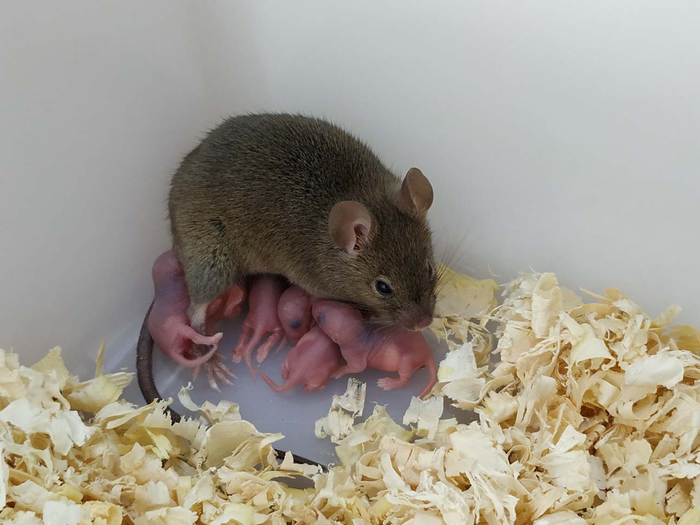Virgin birth: Fatherless mouse born from unfertilised egg survives to adulthood and gives birth to healthy litter
Findings may lead to novel applications in agriculture, medicine, as well as in the study of genetic disorders in humans

A genetically manipulated mouse born from an unfertilised egg survived to adulthood and has given birth to a litter, a landmark new study reports.
The research, published on Monday in the journal PNAS, reveals that a type of reproduction, thought to be impossible in mammals, can be achieved using genetic manipulation techniques – an advance that may lead to novel applications in agriculture, research, and medicine.
Parthenogenesis is a way to generate offspring using only unfertilised egg cells, and this form of asexual reproduction is widely reported in nature in invertebrates such as scorpions, aphids, mites, some bees, fish, amphibians, and reptiles.
Until now, artificially creating this form of reproduction in mammals has not been successful mainly due to a process called genomic imprinting in which some genes are chemically tagged to indicate their parent of origin.
This natural process silences the tagged genes to ensure embryos develop without any glitches.
In the new study, scientists, including Yanchang Wei from Shanghai Jiao Tong University, show that parthenogenesis is possible in mammals through a new targeted genetic manipulation technique using the gene-editing tool CRISPR.
They have also demonstrated that a mouse born via parthenogenesis can survive to adulthood and have offspring of its own.
The new technique, researchers say, edits DNA methylation marks, which are chemical modifications to the genome that can alter the activity of the body’s genes without changing the underlying DNA sequence.
They say the modified genetic regions showed maintenance of this methylation modification during the initial stages of development of the mouse embryo.
And the transfer of these modified embryos into foster mothers resulted in extended development and finally in the generation of “viable full-term offspring,” according to the study.
“Here, we report live mammalian offspring derived from single unfertilised eggs. This was achieved by the targeted DNA methylation rewriting of seven imprinting control regions,” scientists wrote in the study.
In animals, sexual reproduction involves the fusion of a sperm cell with an egg cell – with each of them containing a set of genetic material – and the resulting embryo contains two copies of a gene – one from each parent.
Most of the body’s cells express both maternal and paternal copies of the genes, but some of the imprinted genes show expression from only one member of the gene pair (allele) from the patents.
Using the new technique, researchers could successfully target and modify the DNA methylation in one copy of the gene, and not the other.
When the scientists transferred embryos with the modified genome into foster female mice, it resulted in the generation of full-term offspring, which they say exhibited “normal reproductive performance as an adult.”
While only one of the live offspring survived to adulthood, researchers say the study indicates parthenogenesis can be achieved in mammals through the regulation of multiple imprinting control regions using genetic modification techniques.
They call for further refinement of the technique to improve its success rate, adding that the feasibility of parthenogenesis in mammals “opens avenues in agriculture, research, and medicine.”
The findings may also lead to further insights on imprinting-related congenital disorders in humans such as Angelman syndrome which causes delayed development, problems with speech and balance, and intellectual disability.
Subscribe to Independent Premium to bookmark this article
Want to bookmark your favourite articles and stories to read or reference later? Start your Independent Premium subscription today.

Join our commenting forum
Join thought-provoking conversations, follow other Independent readers and see their replies